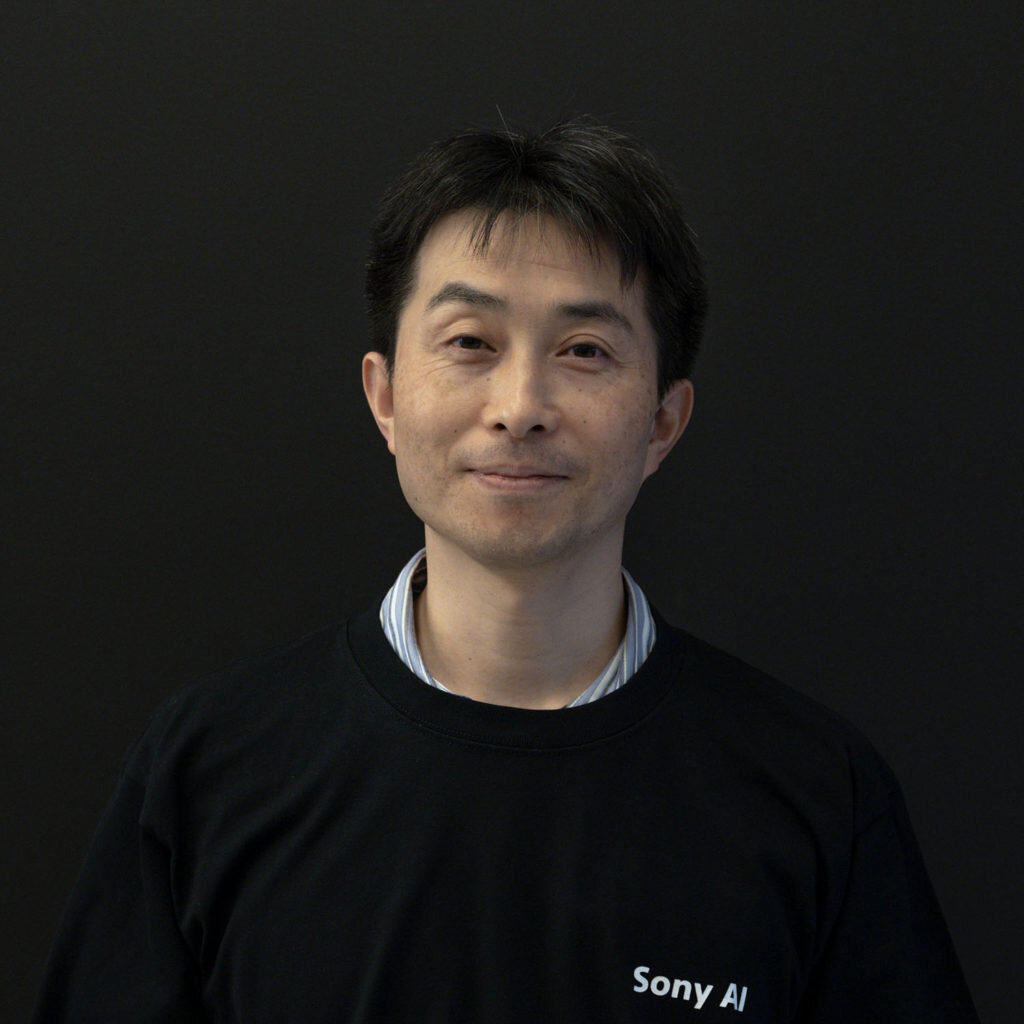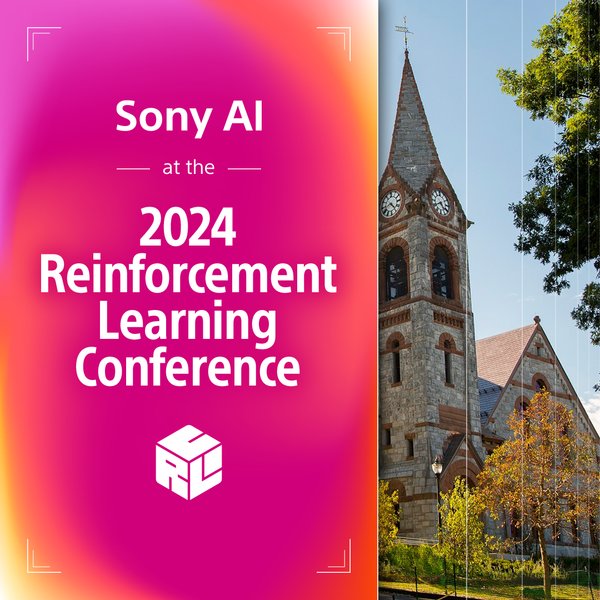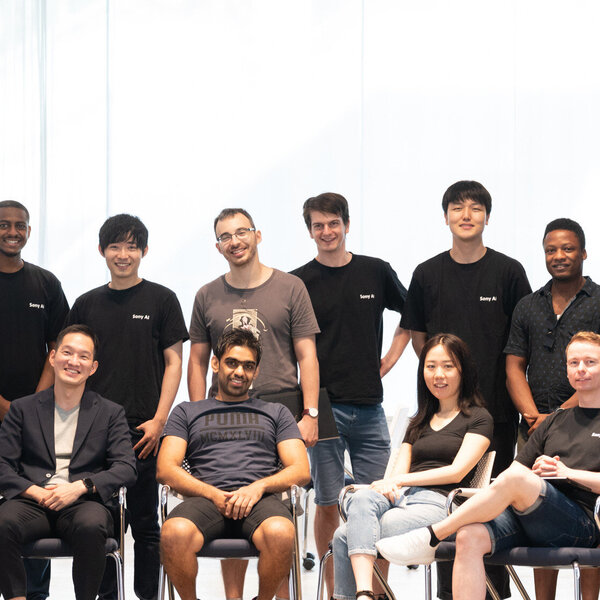
Kenta
Kawamoto
Profile
Kenta developed several robots at Sony, such as the first generation AIBO, small humanoid robot QRIO, and so on, where he worked on real-time embedded systems for those robots as a lead software engineer and system architect. Then he became interested in developmental intelligence of autonomous systems and started his research in this domain. He won the Best Paper Award at the International Conference on Development and Learning and Epigenetic Robotics 2011. At Sony R&D Center, he was leading and managing research on “behavior learning” which focuses on machine learning for planning and control of robot behaviors and skills. At Sony AI, Kenta is mainly involved in Game AI projects and was awarded the Sony Outstanding Engineer Award 2020.
Message
“I am very interested in achieving machine intelligence that is as flexible as a human being. I believe that 'intelligence’ lies in the ability to control the world. Perception and prediction alone are not enough to make a machine intelligent, in my humble opinion. In short, I’d like to live with a robot that learns autonomously and continuously to improve its behavior. I want the robot to be able to adapt not only to changes in the environment, but also to changes in the level of tasks and values, as such changes are the nature of human life and society. PlayStation's product-level games are the perfect place for the research and development of such intelligence.”
Publications
Deep reinforcement learning has achieved superhuman racing performance in high-fidelity simulators like Gran Turismo 7 (GT7). It typically utilizes global features that require instrumentation external to a car, such as precise localization of agents and opponents, limiting …
Policies learned through Reinforcement Learning (RL) and ImitationLearning (IL) have demonstrated significant potential in achieving advanced performance in continuous control tasks. However, in real-world environments, itis often necessary to further customize a trained pol…
Racing autonomous cars faster than the best human drivers has been a longstanding grand challenge for the fields of Artificial Intelligence and robotics. Recently, an end-to-end deep reinforcement learning agent met this challenge in a high-fidelity racing simulator, Gran Tu…
Autonomous racing poses a significant challenge for control, requiring planning minimum-time trajectories under uncertain dynamics and controlling vehicles at their handling limits. Current methods requiring hand-designed physical models or reward functions specific to each …
Hierarchical reinforcement learning (RL) can accelerate long-horizon decision-making by temporally abstracting a policy into multiple levels. Promising results in sparse reward environments have been seen with skills , i.e. sequences of primitive actions. Typically, a skill …
Many potential applications of artificial intelligence involve making real-time decisions in physical systems while interacting with humans. Automobile racing represents an extreme example of these conditions; drivers must execute complex tactical manoeuvres to pass or block…
When humans play virtual racing games, they use visual environmental information on the game screen to understand the rules within the environments. In contrast, a state-of-the-art realistic racing game AI agent that outperforms human players does not use image-based environ…
Blog

August 10, 2024 | Game AI
Sony AI at the Reinforcement Learning Conference 2024
Sony AI will be participating in the Reinforcement Learning (RL) Conference in Amherst, Massachusetts, from August 9 to 12, 2024 where we will be joining some of the brightest minds in the field—and we are honored to be a part of …
Sony AI will be participating in the Reinforcement Learning (RL) Conference in Amherst, Massachusetts, from August 9 to 12, 2024 w…

April 4, 2022 | Life at Sony AI
Meet the Team #4: Kenta, Alisa and Thomas
The next installments of our Meet the Team series will feature members of the global Sony AI team who contributed to thegroundbreaking research, Outracing Champion Gran Turismo Drivers with Deep Reinforcement Learning, and created…
The next installments of our Meet the Team series will feature members of the global Sony AI team who contributed to thegroundbrea…
JOIN US
Shape the Future of AI with Sony AI
We want to hear from those of you who have a strong desire
to shape the future of AI.


